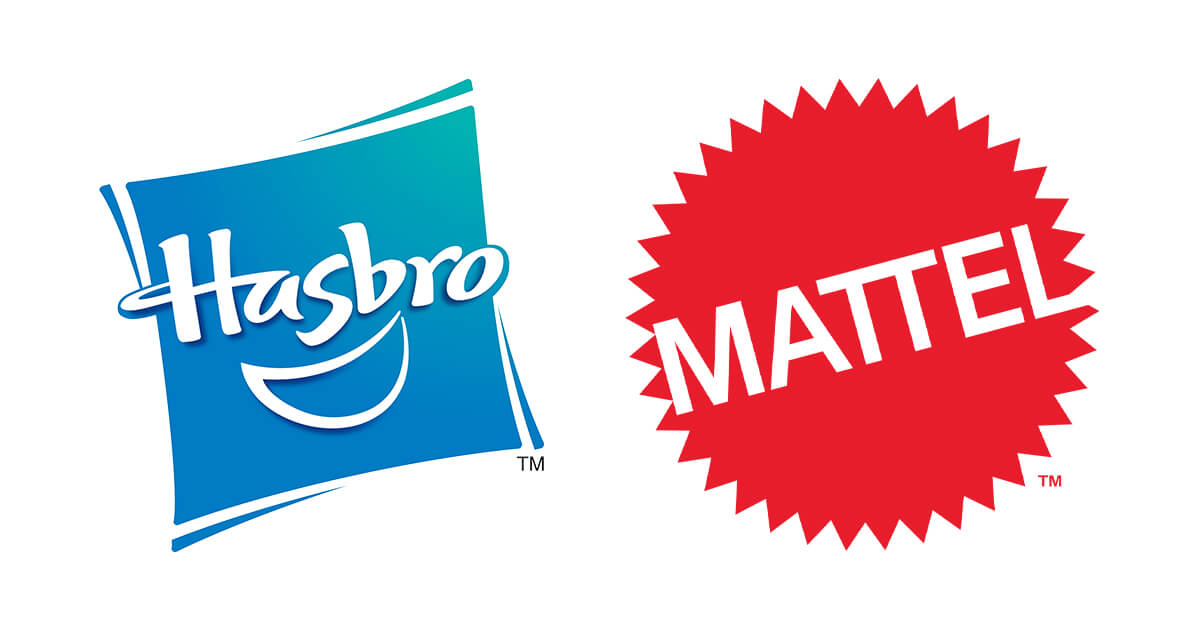Mattel, Hasbro Predict Strong Growth

As they reported sales for their first quarters, Hasbro and Mattel say they’re optimistic about toy industry sales this year, but acknowledge that some categories that surged in popularity during the pandemic will likely see slower growth as the newly vaccinated homebound return to activities.
Sales of outdoor toys, games and building sets “will be challenged” to repeat last year’s performance, Mattel CEO Ynon Kriez told analysts. For its part, Mattel’s building set (46%) and games (25%) sales increased in the first quarter March 31 – a quarter that compares to a year-ago period that mostly took place before the pandemic decimated much of retail.
Healthy Games Sales, But Not at Pandemic Levels
Hasbro’s revenue from games rose 7% to $363 million on strong sales of Monopoly and Magic the Gathering. Absent those two brands, games revenue declined 3%. CEO Brian Goldner said games sales increased 30% in the first 12 weeks of this year versus 2020, but the growth rate has slowed, likely because they’re now comping against the first weeks of the pandemic, when sales of games and puzzles began to skyrocket. The category remains “healthy” with revenue tracking above pre-COVID 2019 levels, Goldner said.
While revenue from the three toy categories is expected to slow, the overall toy business is “off to a strong start,” Kriez said. Mattel forecasts a 6-8% revenue increase in the current year, led by dolls, vehicles and infant/toddler/preschool toys, Kriez said. Mattel projects mid-single digit percentage sales increases for 2022 and 2023 as well. Hasbro, meanwhile, predicts a “double-digit” percentage sales increase for this year, but didn’t specify a number.
Uncertainty in Films
The expected increases come despite a film and entertainment slate that so far has been “light” as cinemas slowly re-open with reduced capacities, forcing toy companies to rely more heavily on evergreen brands, Krietz said.
The release of tentpole films is expected to resume in May starting with Cruella and Fast & Furious 9 (both May 28), and continuing with Ghostbusters: After Life (June 11) and Black Widow (July 9). Mattel has licenses for Jurassic World, World Wrestling Entertainment and Minecraft and a strong roster of owned IP, including Masters of the Universe, for which is launching an action figure line and has a series set to be released on Netflix this summer. Hasbro’s Q1 gains in partner brands were largely tied to Star Wars, Mandalorian, Disney Princess and Marvel (Spider-Man).
Hasbro’s entertainment revenue, which includes studio production via Entertainment One, fell 34% ($194.3 million), due largely to many film releases being pushed out to the second half as studios adjust to “tight” COVID protocols for production, says Stephanie Wissink, equity analyst at Jeffries & Co. Hasbro expects studio revenue to increase by a “double-digit” percentage as full production resumes and films such as Snake Eyes: G.I. Joe Origins (July 23) and My Little Pony (Sept. 24 on Netflix), are released).
As the film release scheduled picks up, many retailers are planning summer sales promotions for toys, Goldner said. There will further retail promotions starting in the fourth quarter, Goldner said.
“It’s multiple at-bats for big promotional windows that will begin early but continue and then accelerate during the holiday period from several different categories of retailers,” Goldner said.
Despite the expected sales increases, it’s still “hard to predict” certain aspects of the business, Kriez said. Most vexing is rising costs across the entire supply chain, Kriez said. Resin and shipping costs alone are expected to rise 35% this year and have an outsized pressure on the business, Mattel CFO Anthony DiSilvestro said.
The extent to which higher costs will result in consumer price increases for toys remains to be seen. Mattel is “evaluating price adjustments,” DiSilvestro said. He adds that Mattel’s “combination of pricing and optimizing for savings will more than exceed the impact of cost inflation over time,” but not this year.
Hasbro says it’s planning wholesale price increases for toys and games for the second half to offset increased costs for packaging, metal and resins as well as shipping, Hasbro CFO Deborah Thomas said. Hasbro has been seeking to “mitigate” logistical bottlenecks by using air freight “but at a higher cost than our original plan,” Thomas said.
As they navigate the rising costs, both companies are readying a non-fungible token (NFT) strategy. Hasbro has established staff on the West Coast to focus on NFTs, Goldner said. Mattel is reviewing “all types of opportunities” including NFTs with a focus on fanbases and “collectors of evergreen brands,” Kriez said. Hasbro sees “multiple opportunities” for NFTs.
Mattel’s net loss in Q1 narrowed to $115 million from $210.7 million a year earlier as sales rose 47% to $874 million and were up 27% from the same period in 2019. Revenue was driven by double-digit sales increases across Barbie, Hot Wheels, Fisher-Price and Thomas & Friends. Ecommerce sales, including those from its new curated Mattel Creations direct-to-consumer business, rose 58% and accounted for 28% of total revenue.
Hasbro posted a $116.2 million profit, reversing a $69.7 million loss a year earlier as revenue increased 1% to $1.11 billion. Partner brand revenue, which includes licensed IP, increased 3% ($188 million), while those from its franchised brands (Monopoly, etc.) jumped 24% ($491.5 million).




